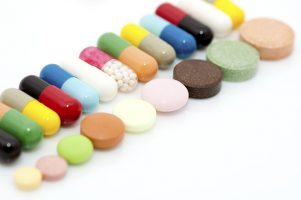- Home
- Editorial
- News
- Practice Guidelines
- Anesthesiology Guidelines
- Cancer Guidelines
- Cardiac Sciences Guidelines
- Critical Care Guidelines
- Dentistry Guidelines
- Dermatology Guidelines
- Diabetes and Endo Guidelines
- Diagnostics Guidelines
- ENT Guidelines
- Featured Practice Guidelines
- Gastroenterology Guidelines
- Geriatrics Guidelines
- Medicine Guidelines
- Nephrology Guidelines
- Neurosciences Guidelines
- Obs and Gynae Guidelines
- Ophthalmology Guidelines
- Orthopaedics Guidelines
- Paediatrics Guidelines
- Psychiatry Guidelines
- Pulmonology Guidelines
- Radiology Guidelines
- Surgery Guidelines
- Urology Guidelines
Acetaminophen may help reduce postoperative shivering

Administering acetaminophen, such as Tylenol, during surgery may reduce the incidence of postoperative shivering, suggests a study being presented at the ANESTHESIOLOGY 2017 annual meeting.
Chills and shivering are a common side effect that happens when patients regain consciousness after surgery. Shivering can occur in up to half of patients. While the exact cause is unknown, scientists believe it may be related to the body cooling down.
"Postoperative shivering is a frequent complication in patients recovering from general anesthesia. It causes significant pain and discomfort," said lead researcher Takahiro Tadokoro, M.D., a physician anesthesiologist at the University of the Ryukyus in Okinawa, Japan. "Postoperative shivering can also put a strain on the cardiovascular system, therefore we need to prevent it, especially in patients with cardiopulmonary risk."
Acetaminophen is being used more and more pre and postoperatively in an effort to control pain and to minimize opioids, Dr. Tadokoro noted. Until now, few studies have evaluated the ability of acetaminophen to prevent postoperative shivering.
The study included 37 patients scheduled for gynecologic surgery. Patients were randomly assigned to receive acetaminophen (15 mg per kilogram of body weight) intravenously, or a placebo, after receiving general anesthesia. Among the women who received acetaminophen, 22.2 percent experienced postoperative shivering, compared to 73.7 percent of those who received the placebo.
Additionally, the severity of shivering was significantly lower among women who received acetaminophen. Body temperature was significantly lower 30 minutes after researchers began their postoperative observation in the recovery room among patients who received acetaminophen compared to those who received the placebo.
"We believe our findings can be widely applicable, as acetaminophen is a relatively safe drug and commonly used," Dr. Tadokoro said.

Disclaimer: This site is primarily intended for healthcare professionals. Any content/information on this website does not replace the advice of medical and/or health professionals and should not be construed as medical/diagnostic advice/endorsement or prescription. Use of this site is subject to our terms of use, privacy policy, advertisement policy. © 2020 Minerva Medical Treatment Pvt Ltd